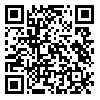BibTeX | RIS | EndNote | Medlars | ProCite | Reference Manager | RefWorks
Send citation to:
URL: http://jdisabilstud.org/article-1-3203-en.html
2- Associate Professor of Psychology, Payam Noor University, Tehran, Iran
3- Assistant Professor, Department of Psychology, Shahrood Branch, Islamic Azad University, Shahrood, Iran
4- Assistant Professor, Department of Cognitive Sciences, Faculty of Psychology and Educational Sciences, Semnan University, Semnan, Iran
Abstract
Background & Objectives: Loneliness is a common feeling experienced by bereaved people, especially during the coronavirus pandemic. Social distancing measures and gathering restrictions made it difficult for people to communicate with others and receive the needed support. This condition resulted in feelings of isolation, sadness, and anxiety. Therefore, the research aimed to compare the effectiveness of coping therapy and hypnotherapy on the feelings of loneliness and reducing bereavement symptoms in people bereaved by COVID–19.
Methods: The current research was quasi–experimental and conducted with a pretest–posttest design with two experimental and one control group. The statistical population of this research included people bereaved by COVID–19, who was introduced from Bahman, Atiyeh, and Parsian hospitals in Tehran City, Iran. The sample size was determined through G*power software so that the study has the necessary power to detect a difference of at least 1 unit in the level of loneliness and grief symptoms between the experimental groups and the control group. Assuming the probability of the type I error is 5%, the likelihood of the type II error is 20%, and the standard deviation is 0.9, the number of samples is estimated at 15 people for each group. Qualified volunteers from among the statistical population were included in the study and randomly assigned to two experimental groups and one control group (each group included 15 people). After selecting the people of the sample group and before starting the treatment program, the loneliness questionnaires (Russell, 1996) and the Hogan Mourning Effects Questionnaire (Hogan, 2001) were distributed between both groups. After that, the therapy intervention program on the first experimental group (in the form of 14 sessions of 90 minutes and each session once a week) and hypnotherapy (in the form of 8 sessions of 90 minutes and each session once a week) on the second experiment was performed and the control group was not subjected to any treatment program. In the end, the posttest was done again on all three groups. Also, after the end of the research, the treatment programs implemented in this research were implemented in the control group to maintain the ethical standards in the study. The inclusion criteria include people who lost a loved one due to COVID–19, had at least a diploma level of education, did not participate in other psychological interventions at the same time, and lacked physical and mental debilitating diseases as determined by the researcher using clinical interviews. The exclusion criteria included an absence of more than three therapy sessions, non–observance of group therapy rules, and suffering from a physical or mental illness that did not exist before the treatment and were identified during the implementation.
Results: The findings of the research showed that the effect of coping therapy and hypnotherapy on reducing the feeling of loneliness of bereavement symptoms in people bereaved due to COVID–19 was significant (p<0.001). Hypnotherapy has been more effective in the subscales of despair, panic, personal growth, blame, and anger. However, coping therapy has been more influential on small scales: separation, withdrawal and confusion. Also, hypnotherapy has been more effective in the variable of loneliness. This effectiveness was also stable in the follow–up phase.
Conclusion: It can be said that interventions of coping therapy and hypnotherapy in the long term can be effective in reducing the feeling of loneliness and reducing the symptoms of grief.
| Rights and permissions | |
 |
This work is licensed under a Creative Commons Attribution-NonCommercial 4.0 International License. |



